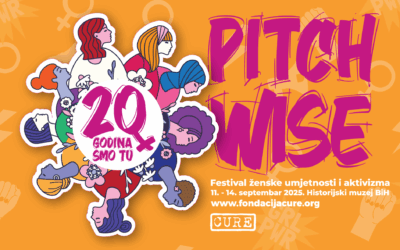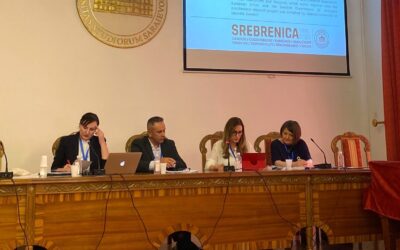General comments:
- In accordance with the newly adopted EU Gender Action Plan 2016-2020 gender should be more considered throughout the Progress Report not only within the traditional sections such as Political criteria and Human rights;
- Although provided in the relevant national regulation, the dialog among the citizens, CSOs and the government on policy and legislative development and implementation processes still remains closed what negatively affects marginalized groups, and mostly women, especially socially marginalized women (women in rural areas, single mothers, women with disabilities, LBT*Q women and other;
- Gender impact assessments of policy and legislative processes are not implemented although regulated; policy makers continuously ignore this obligation thus contributing toward further women inequality in the society; In implementing the reform processes in the area of social, health care, economic reforms and other rights the state is introducing austerity measures that mostly affect marginalized groups, particularly women. Prior to introducing austerity measures, state representatives fail to consult women experts in relevant fields, which clearly sends the message that women’s voices are not welcome and appreciated.
- Implementation of BIH Anti-Discrimination legislation, such as BIH Law on Prohibiting Discrimination, Gender Equality Law and Law on Combating Domestic Violence of FBIH are not fully implemented, monitored, and reported; Statistical and other data collected during the implementation of these laws are not sufficient, adequate and relevant in order to determine / evaluate the impact of these laws on marginalized groups, and women in particular.
Political and public participation
- Women and women’s COS are excluded from reforms process e.g. Reform Agenda developed within the EU Accession Process and related discussions, negotiation with international financial institutions, etc.; Women’s needs and priorities are neither recognized nor included in the country’s reform processes,
- Election Law – The Inter-sectoral working group on the BiH Election Law has suggested abolishing the stipulations of the Election Law on compulsory alternating allocation of female candidates on electoral lists. Formally, the gender quota of 40 % remains in the law, but with this change, in practice, female candidates in almost all political parties would be positioned at the bottom of the lists thus severely undermining their ability to be elected. Therefore, if adopted, this amendment would lead to further decline in the number of elected women in legislative bodies.
- Women are still underrepresented in expert and governing bodies of public companies, state agencies and other institutions while remaining mainly on administrative and staff positions; State is continuing to violate the BiH Gender Equality Law on obligation to secure 40% gender quota.
Gender Based Violence (GBV)/ Violence against Women
- Relevant legislation is still not harmonised with the Istanbul Convention (e.g. Criminal Code, Domestic Violence Law).
- Entities’ Domestic Violence Law(s) remain non harmonised contributing to legal insecurity of citizens; Statistics data are still not sufficient and adequate to provide enough insight in the law implementation, enabling State to develop functional policy response to GBV; there are no institutional departments specialised for GBV cases (e.g. departments in police, prosecutors, courts, health institutions, etc.)
- Federation Domestic Violence Law is partially implemented and relevant bylaws are still not adopted. With resent proposed amendments to Domestic Violence Law the Federation Ministry of Justice is undermining current shelter system run by women CSOs. Lack of adequate budget for full implementation of current relevant legislation has caused closure of one safe house in Mostar, FBiH and has brought other houses on the edge of survival.
- Law on Victims of Torture has not been adopted yet; women victims of war do not enjoy the same status in BiH entities.
- State continues to violate its legislation, denying access to justice and support for victims of GBV. Access to free legal aid and court representation is very limited, if existing at all, while information on existing legal aid centres are not sufficient.
- Bosnia and Herzegovina remains a country of origin, transit and destination for human trafficking for labor exploitation, sexual exploitation, begging and forced marriages. The number of identified victims of human trafficking has increased threefold, of which 80% of victims are women and girls. Changes to the Criminal Code that would ban all forms of human trafficking in accordance with national legislation and the acquis are not brought in FBiH, which prevents the country to prosecute the crimes of trafficking. Persons suspected of trafficking are prosecuted only for the crimes of “incitement to prostitution” or “child neglect”.
- The economic exploitation and begging of women and children is widespread in the country but also outside the borders of BIH. In a recent joint operation of Bosnian and French investigators code-named “CD”, 22 children were found in a private house in Zenica, whose mothers had been blackmailed and who were the victims of organized crime and human trafficking for labour exploitation, theft and begging on the territory of France. Two Bosnian civil servants and an employee of the BiH consular representation in Paris were among the arrested in this Action on suspicion of being involved In human trafficking.
- Poor and non-harmonised penal policy, long court procedures, low penalties imposed by the courts lead further to impunity of these crimes. Feticide is still underreported although present in public and media.
Policy reforms on employment and social policy
- The trend of low participation of women at the labour market continues; women work more in grey economy; women are still in majority among unpaid family workers, etc. The State is continuously failing to provide adequate institutional support to working mothers and mothers seeking employment (e.g. not enough kindergartens, etc). The collapse of the public transportation system, especially in rural areas, mainly affects women and women’s mobility, especially affecting women with disabilities in accessing rights to work and other related rights;
- The reform of social protection does not include gender impact assessment; according to available information, austerity measures and budget savings affect women mostly (e.g. foster care, family pensions whose beneficiaries are mostly women); There are still no policy and legislative decisions or implementation of paid parental leave; funds for those payments are not secured. In FBiH, employed women while on maternity leave are treated as beneficiaries of social protection and paid through cantonal budgets; and, not as beneficiaries of the social insurance schemes accessing rights based on employment and paid by existing health insurance funds.
- All children in Bosnia and Herzegovina are not covered by compulsory health insurance and the regression of these rights as well as exclusion of marginalized groups, Roma and other social categories has been recorded in some cantons.
Reports prepared by:
PRAVA ZA SVE, Sarajevo
ICVA (Inicijativa i civilna Akcija), Sarajevo
Udruženje “Zemlja djece u BiH”, Tuzla
Fondacija Udružene žene, Banja Luka
Fondacija Lokalne Demokratije, Sarajevo
Fondacija CURE, Sarajevo
Žene Ženama, Sarajevo
Centar za pravnu pomoć ženama, Zenica
Udruženje Građana Budućnost, Modriča


